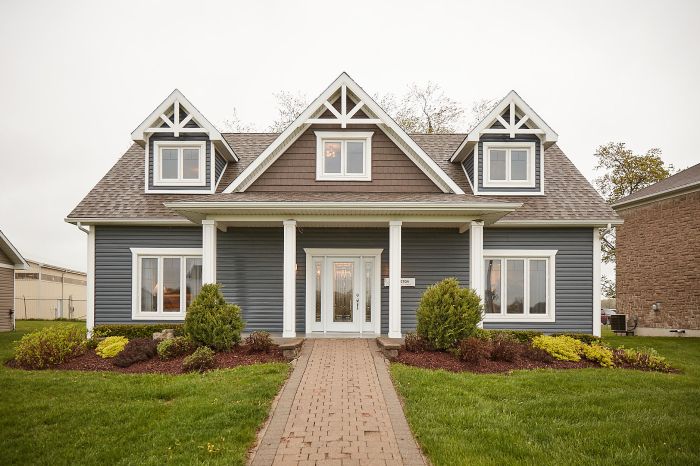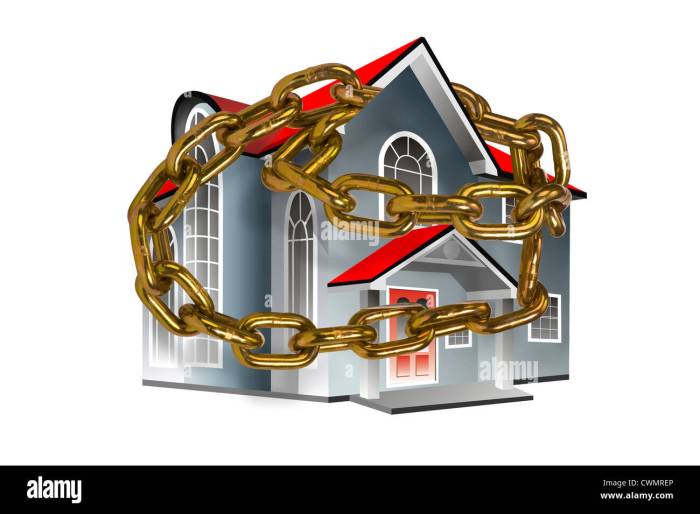Modular home construction trends are reshaping the landscape of housing, bringing innovative solutions that blend sustainability with modernity. As the demand for efficient, customizable, and eco-friendly homes rises, modular construction is stepping into the spotlight, showcasing its unique advantages over traditional building methods.
From advanced technologies that streamline the building process to the growing acceptance of modular homes in luxury markets, this evolution reflects a significant shift in consumer preferences and market dynamics. With environmental concerns at the forefront, modular homes not only promise speed and affordability but also aim to reduce the carbon footprint associated with traditional construction practices.
Current Trends in Modular Home Construction
Modular home construction is experiencing significant advancements that resonate with modern demands for efficiency, sustainability, and flexibility. As technology evolves, so too does the capability of modular homes, offering innovative solutions that meet the needs of today’s homebuyers.
Recent Advancements in Modular Construction Technology
Recent technological innovations in modular construction include the integration of advanced building materials and automation in manufacturing processes. Innovations such as 3D printing and prefabricated components are streamlining the construction timeline, reducing waste, and lowering costs. These technologies allow for greater precision and customization in design, enabling builders to create unique living spaces that reflect individual preferences.
Benefits of Modular Homes Over Traditional Building Methods
The advantages of modular homes are compelling and varied. They include:
- Shorter construction times, often completed in weeks rather than months.
- Reduced construction waste due to factory-controlled environments.
- Cost-effectiveness stemming from streamlined processes and reduced labor costs.
- Higher quality control as components are built to specifications in a factory setting.
- Increased energy efficiency, leading to lower utility bills for homeowners.
Environmental Impact of Modular Construction Trends
Modular construction significantly reduces the environmental footprint of building projects. The use of sustainable materials, energy-efficient designs, and reduced waste during production contribute to a greener building method. By consolidating construction activities and minimizing transportation emissions, modular homes present a more sustainable option compared to traditional building methods.
Market Demand for Modular Homes

As the real estate landscape continues to shift, modular homes are becoming increasingly attractive to real estate investors and buyers alike. The unique advantages offered by modular homes are contributing to a notable increase in market demand.
Increasing Popularity Among Real Estate Investors
Investors are recognizing the potential of modular homes as viable investment opportunities. Their affordability, rapid deployment, and appeal to a broad demographic make them a sound choice for those seeking to diversify their portfolios.
Changing Residential Property Markets
The rise of modular homes is influencing residential property markets by introducing a new category of properties that are more accessible to a wider range of buyers. As demand grows, traditional housing markets may adapt by incorporating modular options into their offerings, thereby addressing the shortage of affordable housing.
Consumer Preferences for Modular Luxury Homes
There is a growing segment of consumers seeking luxury modular homes that combine high-end design with the benefits of modular construction. Preferences include customizable floor plans, high-quality finishes, and energy-efficient appliances, all of which enhance the appeal of modular luxury homes.
Modular Home Design Innovations
The design of modular homes is evolving to meet modern aesthetic and functional demands. New trends reflect a balance of style, utility, and sustainability.
Latest Design Trends in Luxury Modular House Design
Luxury modular homes are incorporating contemporary design elements such as open floor plans, large windows for natural light, and outdoor living spaces. These features not only enhance the visual appeal but also create a seamless connection between indoor and outdoor environments.
Customizable Features in Modular Homes
One of the most attractive aspects of modular homes is the ability to customize various features, including:
- Floor plans that can be tailored according to family needs and preferences.
- Exterior finishes, colors, and materials that align with personal style.
- Interior elements like kitchen layouts, cabinetry, and bathroom fixtures.
Role of Sustainable Materials in Modern Modular Construction
Sustainability is at the forefront of modern modular home design. Builders are increasingly utilizing eco-friendly materials, such as recycled steel and low-VOC paints, to enhance both the durability and environmental performance of homes. This shift not only attracts environmentally conscious buyers but also contributes to a healthier living environment.
Financing Modular Homes
Understanding the financing options available for purchasing modular homes is crucial for potential buyers and investors.
Various Financing Options for Purchasing Modular Homes
Financing modular homes can involve several avenues, including traditional mortgages, specialized loans, and government programs designed to encourage affordable housing. Potential buyers should explore options such as FHA loans or USDA financing, which can provide favorable terms for those purchasing modular homes.
Challenges in Mortgage Refinancing for Modular Properties
Despite the many options available, refinancing modular homes can pose challenges. Some lenders may have concerns regarding the appraisal values and resale potential of modular homes, which can complicate the refinancing process.
Strategies for Marketing Modular Homes to Buyers
Real estate agents can effectively market modular homes by highlighting their benefits, such as rapid construction timelines, energy efficiency, and customization options. Engaging marketing materials, virtual tours, and showcasing successful modular projects can attract potential buyers and differentiate these homes in a competitive market.
Modular Homes in Commercial Properties
The application of modular construction is not limited to residential homes; it is also making significant inroads into commercial real estate.
Application of Modular Construction in Commercial Real Estate
Modular construction is increasingly being utilized in commercial properties, offering flexibility in design and functionality. This approach allows for faster project completion, which is particularly advantageous in fast-paced commercial markets.
Advantages of Modular Buildings for Commercial Property Developers
Some of the key advantages for developers include:
- Reduced construction times, allowing for quicker return on investment.
- Lower overall project costs due to factory efficiencies.
- Flexibility in design, accommodating various types of commercial spaces.
Trends in Modular Designs for Commercial Spaces
Modern modular designs for commercial spaces are focused on creating functional, adaptable environments. Trends include open layouts for collaboration, sustainable building practices, and the use of high-quality finishes to promote a professional image.
Impact on Real Estate Agents and Investors
The rise of modular homes is reshaping the strategies employed by real estate agents and investors alike.
Influencing Real Estate Marketing Strategies
Real estate marketing is evolving as agents adapt to the demand for modular homes. This includes focusing on digital marketing strategies to reach tech-savvy buyers and utilizing social media platforms to showcase unique modular properties.
Role of Real Estate Agents Specializing in Modular Homes
Agents who specialize in modular homes can leverage their expertise to educate buyers about the benefits and nuances of modular construction. Their knowledge can build trust and confidence among potential buyers, facilitating smoother transactions.
Investment Opportunities in Modular Construction for Real Estate Investors
For investors, modular construction presents unique opportunities for diversification. With the increasing demand for affordable housing and sustainable living solutions, investing in modular homes and developments can yield significant returns.
Future of Modular Home Construction
Predicting the future of modular home construction reveals exciting possibilities driven by innovation and changing consumer preferences.
Potential Future Trends in the Modular Home Construction Industry
Future trends may include an increased focus on smart home technologies, where modular homes are equipped with integrated systems that enhance security and energy efficiency. Additionally, the rise of urbanization may lead to higher demand for modular solutions in densely populated areas.
New Technologies Influencing Modular Building Methods
Emerging technologies such as artificial intelligence and machine learning may further optimize the modular construction process, improving efficiencies and reducing costs. These advancements could revolutionize project management and supply chain logistics.
Consumer Attitudes Towards Modular Homes
As awareness and understanding of modular construction grow, consumer attitudes are likely to shift positively. Increased emphasis on sustainability, affordability, and customization will drive interest and acceptance of modular homes as a viable housing solution.
Challenges in Modular Home Construction
While modular home construction offers numerous benefits, it is not without its challenges.
Common Challenges in Modular Home Project Management
Managing modular home projects can involve unique challenges, including coordinating logistics for transportation and assembly. Ensuring that all components arrive on schedule is essential for maintaining project timelines.
Regulatory Hurdles Affecting Modular Construction
Navigating local building codes and zoning regulations can be complex for modular home builders. Familiarity with these regulations is essential for ensuring compliance and avoiding costly delays.
Site Preparation and Logistics Issues in Modular Home Delivery
Site preparation is crucial for the successful delivery of modular homes. Factors such as terrain, access to utilities, and foundation requirements must be carefully managed to facilitate a smooth installation process.
Case Studies of Successful Modular Home Projects
Examining successful modular home projects provides valuable insights into effective practices and innovative designs.
Notable Modular Home Projects and Their Unique Features
Projects such as the “Wolverine Modular Home,” known for its contemporary design and energy efficiency, showcase the potential of modular homes. These examples highlight how modular construction can achieve aesthetic appeal while maintaining sustainability.
Success Factors Contributing to the Popularity of These Projects
Key factors contributing to the success of modular projects often include strong marketing, community engagement, and collaboration with skilled architects and builders. Moreover, a focus on meeting the needs of modern homeowners is crucial.
Lessons Learned from Failed Modular Home Initiatives
Analyzing failures in modular home initiatives can provide critical lessons. Issues such as inadequate market research, poor project management, and failure to comply with regulations have resulted in setbacks, emphasizing the importance of thorough planning and execution in future projects.
Final Review
In summary, the future of modular home construction looks promising, fueled by technological advancements and shifting market demands. As consumers become more aware of the benefits of modular homes, including customization and sustainability, the industry is likely to witness continued growth and innovation. By overcoming existing challenges and embracing new design trends, modular construction will redefine how we think about home building for years to come.
Helpful Answers
What are the typical costs associated with modular homes?
Modular homes generally range from $100 to $200 per square foot, depending on design choices and materials.
How long does it take to construct a modular home?
Typically, modular homes can be completed in 3 to 6 months, significantly faster than traditional homes.
Are modular homes energy efficient?
Yes, many modular homes are built with energy-efficient materials and designs, enhancing their sustainability.
Can modular homes appreciate in value?
Yes, modular homes can appreciate in value similar to traditional homes, especially in desirable locations.
What types of financing are available for modular homes?
Buyers can explore options such as conventional loans, FHA loans, and VA loans specifically for modular homes.
